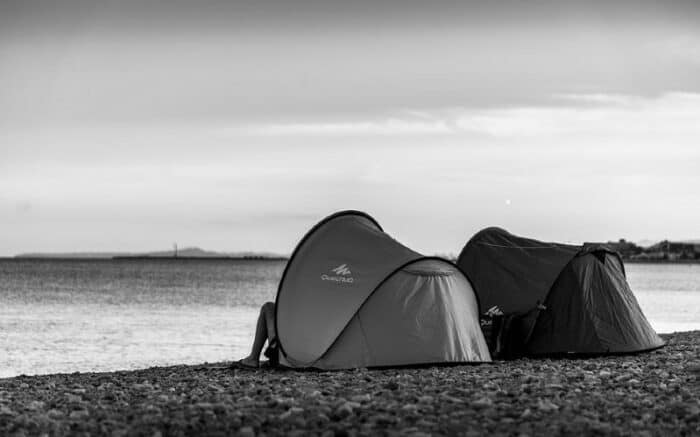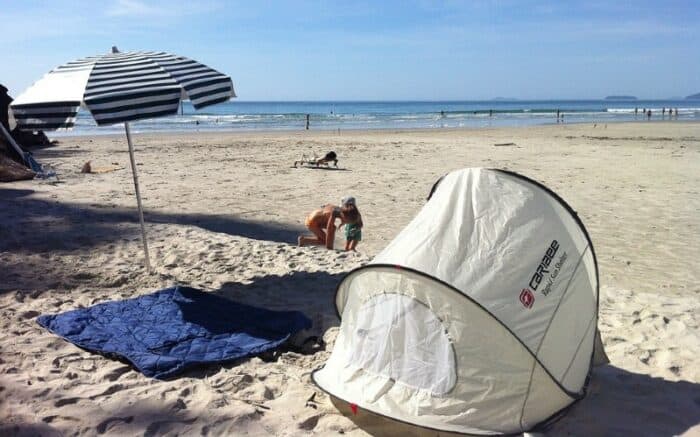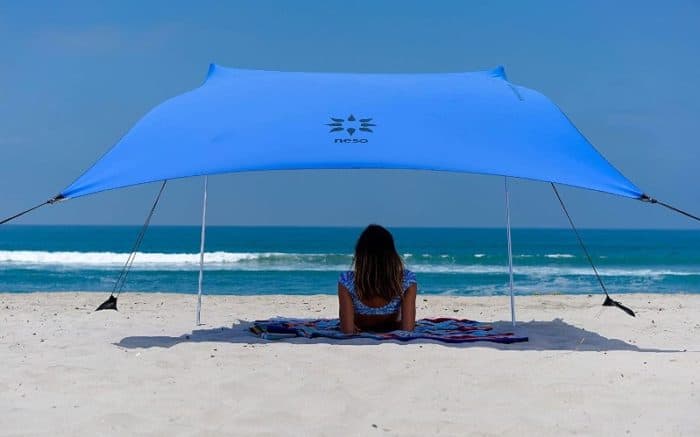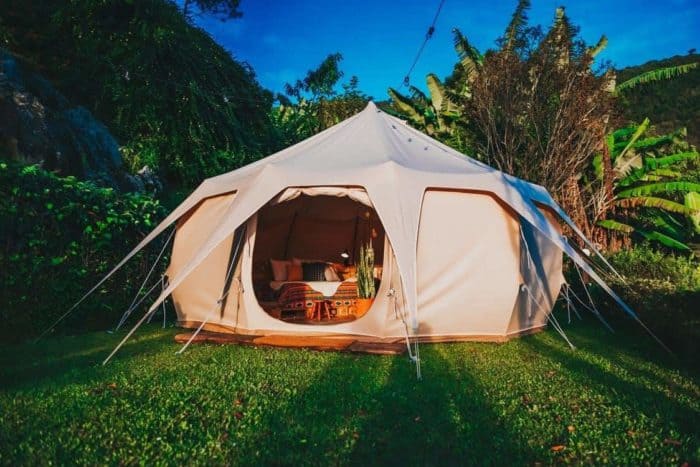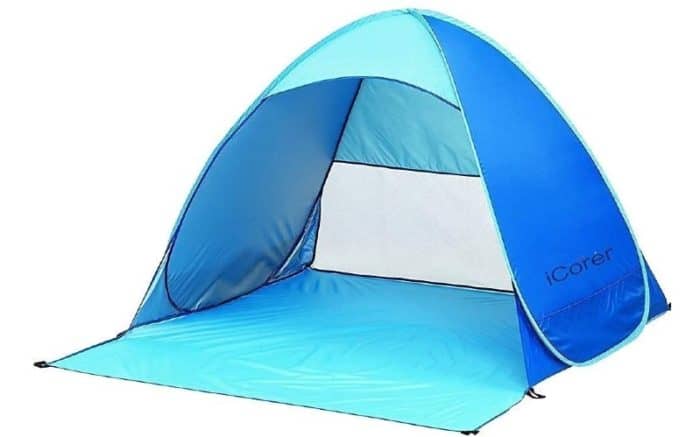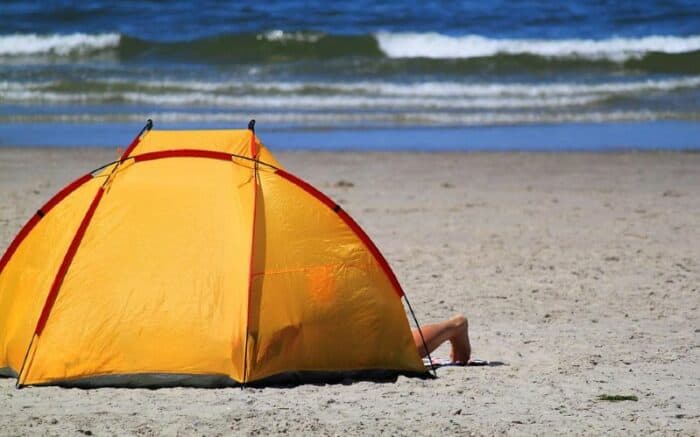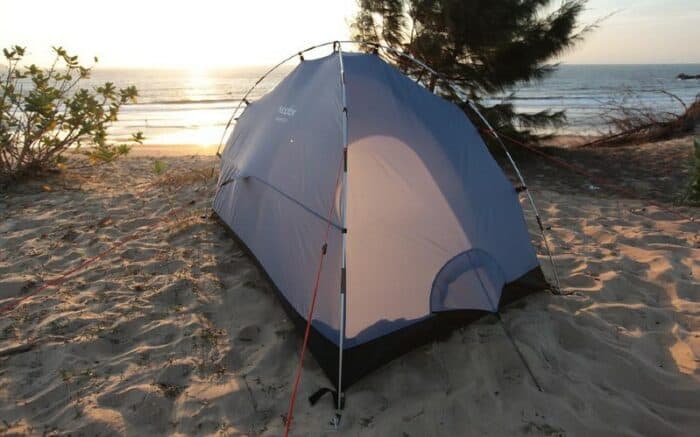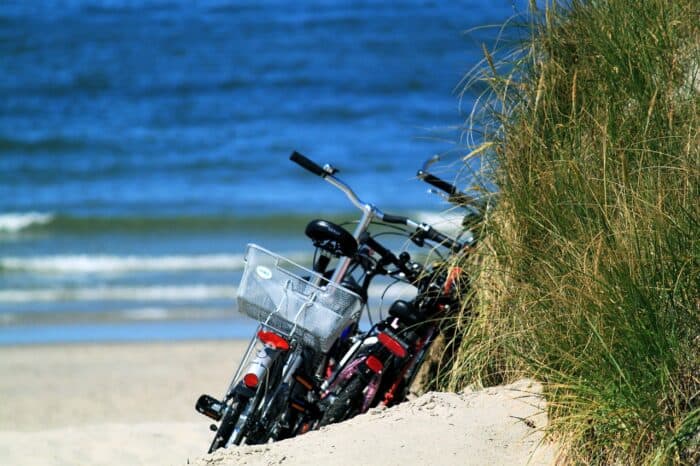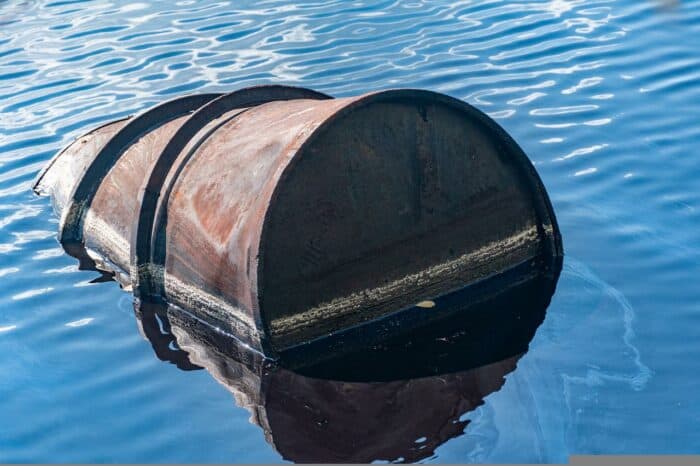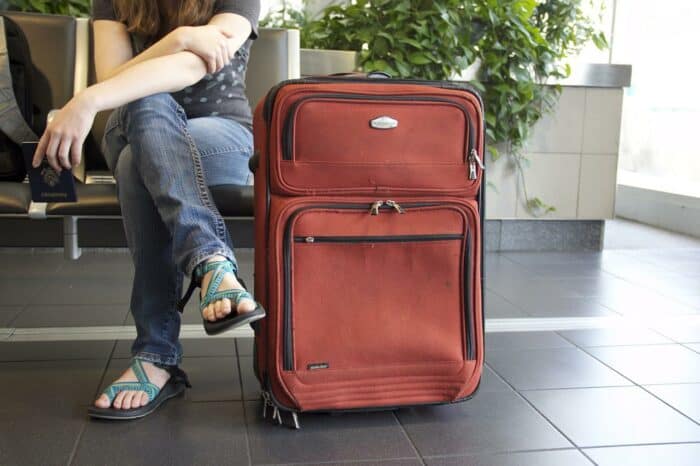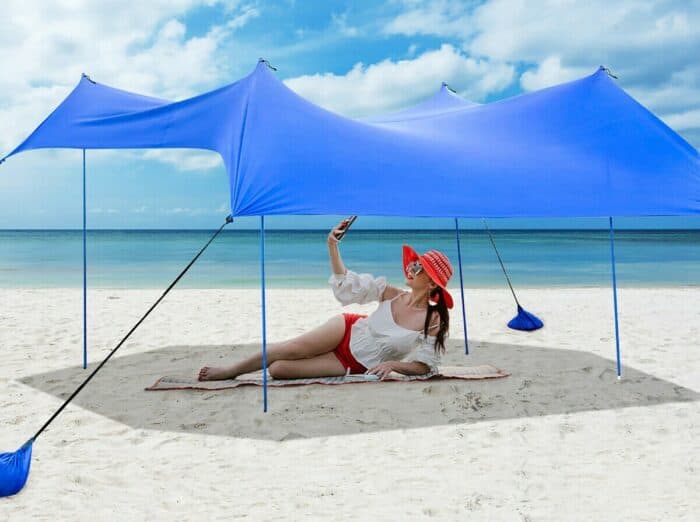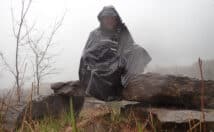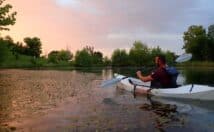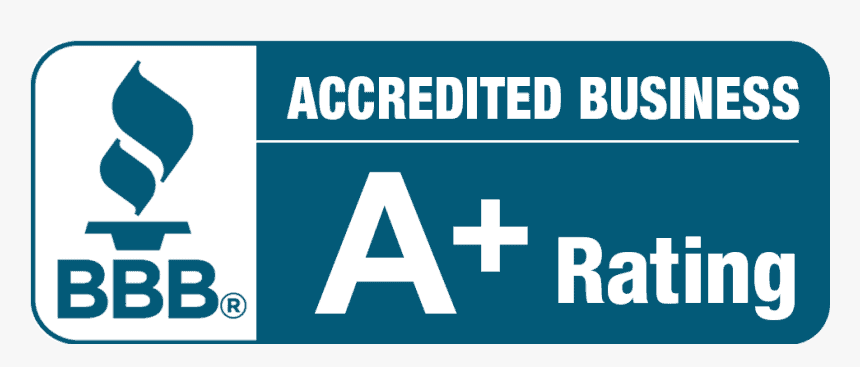Beach Tent vs Camping Tent: Is There a Difference?
They say you always need the right tool for the right job. That extends well beyond the world of tools, however. If you want to haul a trailer you need the right truck. If you’re going on a job interview you need the right clothes. And if you plan to head to the beach and escape the sun, you need the right tent. Camping tents and beach tents are not the same thing. They have a lot of similarities, but if you want to maximize the benefits of either you need to know the differences between them and when it’s best to pick one over the other. So with that in mind, let’s check out the differences between beach tents and camping tents.
Key Features in Beach Tents
Beach tents are designed specifically for use on the beach. What that means is that they are able to offer benefits a typical camping tent will not. Most specifically, a beach tent should be offering you UV protection. The materials in a beach tent can filter UV light and protect you from the harmful UVA and UVB rays of the sun. That reduces the risk of sunburns and, of course, skin cancer.
Generally, a beach tent will be made of something like polyester or vinyl. It’s lightweight, good at cutting out wind, and can be treated to be UV resistant. If you’re shopping for a beach tent, check the SPF rating that it offers. Many of them have a coating on the material that provides an SPF of 50 or more at some cases, which is great for keeping yourself protected from the sun’s rays.
The other main function of a beach tent is wind protection. Beach tents should be designed to allow wind to either pass through or block it entirely in a way that keeps you from being disturbed by the wind, pelted by sand, or having to endure the tent blowing away in a stiff breeze. Of course, a strong wind and an improperly put up tent can make that difficult at the best of times, but ideally this is how it works.
Key Features in Camping Tents
Traditional camping tents are designed for camping, obviously. That means they need to be more rugged. They’re going to experience harsher conditions than a beach tent. Not just sun and wind, a camping tent is meant to hold up to rain, to cold weather, and to conditions that can range from snow to forests to mountains and deserts. So a camping tent has to work anywhere and it has to keep you safe, dry and relatively warm.
These are also often made of materials like vinyl or polyester, but they are thicker than beach tents. Also, you can still find some good quality canvas tents out there. They’re much heavier and much more expensive, but they’re worth it if you’re a serious camper.
Camping tents offer superior privacy. This is important for a lot of people especially if you want to sleep undisturbed or get changed. Once secured, there’s no real way to look inside of most quality camping tents.
A camping tent should have superior insulation against the cold. It’s not a house by any means, but it needs to cut down on loss of heat more than a beach tent.
Another big difference between camping and beach tents is UV protection. A beach tent needs to have UV protection, that’s really it’s main function. But since a camping tent is meant as a shelter against cold and rain, they typically are not designed to be UV resistant. Because of that, they tend to make poor beach tents. All the effort to put up a camping tent on a beach is kind of pointless if it doesn’t offer UV protection. Especially since the UV rays will actually bleach a regular tent over time and leave it looking faded and old. That, in turn, can ruin the weather proofing that keeps the rain and wind out as well.
Size Differences Between Beach and Camping Tents
Beach tents are lightweight. Many are actually just pop up tents that can be folded and unfolded pretty easily by just one person. They will need to be anchored in the sand and don’t typically have actual anchors or tent stakes like a normal tent that need to be pounded into the ground with a hammer. This is because sand is so loose and obviously a tent peg of that kind would be useless.
Beach tents tend to be small. Because they are used for just one or two people to stay out of the sun, they don’t have a lot of room inside. The purpose here is not to keep you comfortable for a night of sleep. It’s just to give you a place to get out of the sun for a few hours at most.
A beach tent will probably fold down to fill a very small space. Their portability is what makes them ideal for beach trips because no one wants to carry a big, bulky tent with them. The material and size both make it easy to carry along with all of your other gears.
Camping tents tend to be larger. Not just thicker and bulkier, but bigger. You’re not meant to sleep overnight in a beach tent, not really. But a good camping tent is a temporary home for you and maybe a few other people as well. It needs to have enough room to house you and your gear comfortably.
While many lone campers only need a tent to house a single person, you can just as easily find tents that can comfortably sleep 5 or 6 people. There are even large tents capable of holding a dozen people, although the prices on those types can get very high. These tents are large enough for an adult to stand upright in. This is not a feature you’ll find in a beach tent.
The size of a camping tent when it’s folded down can still be pretty overwhelming. Large tents that house a half dozen people and are made of heavy canvas can be very bulky and heavy. This is not the sort of thing you’d carry under your arm along with a cooler and beach chairs to the seaside.
Getting In and Out of Tents
In terms of access, a beach tent is designed a lot more openly than a camping tent. The entrance to a beach tent won’t usually go all the way up with a zipper like a camping tent. In fact, many beach tents don’t have the ability to close the opening at all. Others may have a flap that closes over but doesn’t seal or doesn’t seal very securely.
If you go shopping for beach tents you may see that some of the items listed as tents barely even qualify as tents. They’re more like shades or canopies that you can set up and sit underneath. They get the job done and will protect you from the sun but they hardly meet the standard of a traditional tent and don’t even have walls. As such, getting in and out is simple, but there’s no privacy or security.
You can also find a sort of hybrid tent called an umbrella beach tent. These really look like an umbrella on their side that you can get under to protect yourself from the sun,
Camping tents usually have much more complex and secure openings. It’s not unusual for a camping tent to have a door that zippers all the way around the border and then a second light door, like a screen, that can allow light and airflow. The screen is good for keeping out bugs but not shutting out the world completely.
Securing Beach Tents and Camping Tents
This is another big difference between the two styles of tents. Beach tents are necessarily very different from camping tents in terms of how they are secured after setting them up. Because beach sand is so loose, you need a way to anchor the tent that can still withstand the wind.
Typically a beach tent will have a few ways of doing this. One method of anchoring a beach tent is to use sandbags. These may come with the tent when you buy it or you can rig some yourself as they are simple to make. You just need to fill a bag with sand from the beach. The heavier the bag the more secure it will be. One bag secured to lines at the four corners of a tent is often sufficient unless the wind is remarkably strong that day.
The bags need to be filled and then the guy lines can be tied to them. Place the bag at a distance that allows the line to be pulled taut and then anchor all four corners in such a way. For added support, you can bury the sandbags between six inches and a foot beneath the sand.
If bags are not an option, there are sand anchors that can be used. Like regular tent pegs, the guy lines are tied to these. However, the sand anchor may have a threaded base like a large corkscrew that you can drive into the sand. These work best when you dig down several inches to get the loosest, dry sand out of the way and then screw the spike into the firmer, wet sand. Once secure, bury it with the sand you removed.
A deadman anchor is similar to both of these ideas. A guy line is tied around a stick or a tent peg and then you bury it about 9 inches to a foot below the sand. Cover it up again and the weight of the sand will keep it secure, although you can pile rocks over it for added security.
Securing a camping tent is a different matter entirely. One of the big differences starts from the set up. While many beach tents are just pop ups, camping tents often need to be erected with poles. Bigger tents may require another person or two to get them done properly. The metal poles need to be planted firmly in the ground in the corners and maybe at a center point as well.
Once the poles are planted, lines from the poles are attached to tent pegs that you can physically hammer into the soil. When camping in the woods, this is much easier than planting anchors in beach sand. A simple mallet will force the pegs, often just plastic spikes, into the earth. The ground can hold these very securely against even extremely powerful gusts of wind if they are planted correctly.
The process of setting up a beach tent can be just a few minutes if it’s a small, simple pop up tent. Setting up a camping tent capable of housing a half dozen people or more could take 30 minutes or longer.
Air Flow in Beach Tents vs Camping Tents
Air flow is necessary in any kind of tent. Beach tents usually offer more airflow, however. Aside from the opening which is usually not as secure as a camping tent, there are often a number of windows or vents in beach tents that allow the air to circulate. This is an important part of managing the wind on a beach. If there was no way for air to escape, a beach tent might act like a kite or balloon and the force of the wind could pull it off of the ground. Allowing the air to flow through reduces some of that pressure.
So while a camping tent is designed to not blow away in the wind, it will still allow wind through.
Camping tents have windows and vents as well, but a big difference is that usually you can secure these and close them off entirely. This allows you to keep warm in the tent more easily than you would in a beach tent.
Weatherproofing in Beach Tents vs Camping Tents
Both a camping tent and a beach tent should provide some protection to a little rainfall. However, if it gets serious, a camping tent is the better option to stay clean and dry.
Beach tents are often not made to be waterproof. The material will allow water to pass through, and the floor of a beach tent is not always waterproof, either. If the front of the tent doesn’t even have a door then obviously it would provide very little protection in that regard. But it’s not meant to prevent getting wet, either.
Camping tents are intended to be used in conditions where they could get wet. A good quality camping tent will be thoroughly coated to prevent water from getting inside if it’s canvas, or made from thick enough material with waterproofed joints and seams so that no rain can get in.
The floor of a camping tent should be waterproof and ensure that you stay dry even if the ground outside is getting thoroughly soaked in the rain.
Beach Tents vs Camping Tents: Pricing
Pound for pound you will probably spend more money on a camping tent than a beach tent. Some higher quality tents that can hold multiple people may cost you anywhere from $300 to $600 depending on the brand and how many people you need the tent to accommodate.
Beach tents are typically far cheaper than camping tents. It’s actually pretty rare to find a beach tent that costs $200, even one designed for multiple people. That’s again because these are often open and use thinner material and less material. They’re just not as big as a camping tent and it wouldn’t be reasonable for them to cost as much.
Which Tent is Better?
This is a question people ask all the time. Which kind of tent should I be using? The answer is “it depends.” Not what you were hoping for, right? Well, it can’t be one or the other and for a very good reason. Both a traditional camping tent and a beach tents are really good if you use them for what they were meant for. So if you want to know which tent is better, you need to decide what you mean by that? Better for camping or better for the beach? Because, as obvious as it sounds, a camping tent is better for camping and a beach tent is better for the beach.
If you took a beach tent camping you would be really at a loss for space. There’s less room to sleep or set up things like a sleeping bag or an air mattress, which you probably can’t get into most beach tents at all. You’d have to deal with the wind whipping through while you try to sleep and you may also find it’s not very secure against late night visitors like skunks or raccoons.
On the other hand, if you take a camping tent to the beach you’d find that it’s a real hassle to set up in the sand. You can’t plant the poles easily in loose sand, and you’d need to convert all of your tent pegs to deadman anchors to have any hope of them securing the tent.
Once your tent was up, the sun would start to bleach the material and you’d still not be protected from the rays. And, with the added insulation, the inside of the tent would probably get very hot. If there’s no breeze that day, it could get unbearable.
Keep in mind, if you plan to do some beach camping, then using any tent as a beach camping tent is possible, you just need to plan ahead. A beach camping trip means you need space for camping gear that a pop up beach tent probably won’t have. But you may also need sun protection than a normal camp tent won’t provide.
You need to choose the right tent for what you’re doing. Beach tents should stay on the beach and camping tents should stay out where you’re camping.
That’s not to say you couldn’t manage a nice night on the beach sleeping in a regular tent or vice versa. It can be done, it’s just not what’s going to be ideal.
The Bottom Line
If you’re an avid camper and also an avid beach goer, you may find yourself needing to pick up both a camping tent and a beach tent, just to get the most out of each situation. In a real pinch you could adapt either one for the other purpose, but I wouldn’t recommend it for any long term use.
Knowing when to use what kind of tent and how ensures you’ll get the most from your next camping trip or beach trip. Just remember to stay safe and have fun.
Categories: Beach
